
13 August 2024
San Diego’s Top Emerging and Growing Occupations
Center for Research & Evaluation
To analyze shifts in San Diego County's job market and how UC San Diego Division of Extended Studies programs align with these changes, the Center for Research + Evaluation used a weighted ranking to evaluate occupational trends and market dynamics
To better understand how occupations in the San Diego County area are changing over time and how UC San Diego Division of Extended Studies programs fit into this changing landscape, the Center for Research + Evaluation team used a weighted ranking to sort occupations by trends and the dynamics affecting the local job market.
Leading occupations were determined in terms of long-term and short-term percent growth rates alongside ten other criteria. Including multiple criteria is meant to better balance a ranking of occupations. For example, adding five new jobs this year to four from the previous year is technically 125% growth rate, but ultimately not very impactful on the job market. By including a penalty component that negatively impacts the overall score for those occupations that added few jobs in terms of absolute numbers, we account for this discrepancy. Similarly, while an occupation may provide many jobs, it may not pay workers well or it may have a very high turnover rate due to worker strain; these and other factors were also considered in producing the list of top occupations.
Below is a full list of criteria considered for each occupation (96 occupations) and a figure showing how occupations in San Diego rank when considered only by that single criterion.
Competitive Effect
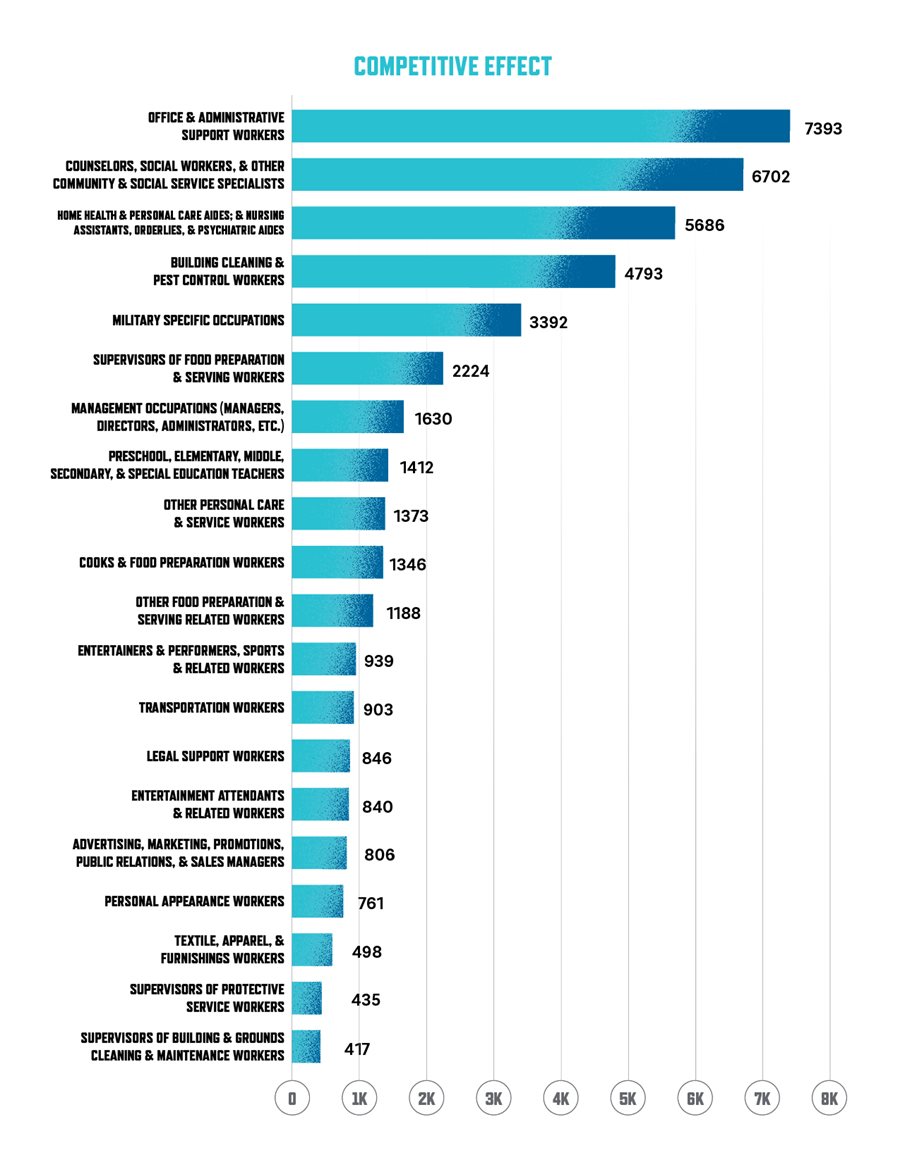
2023 Job Counts:
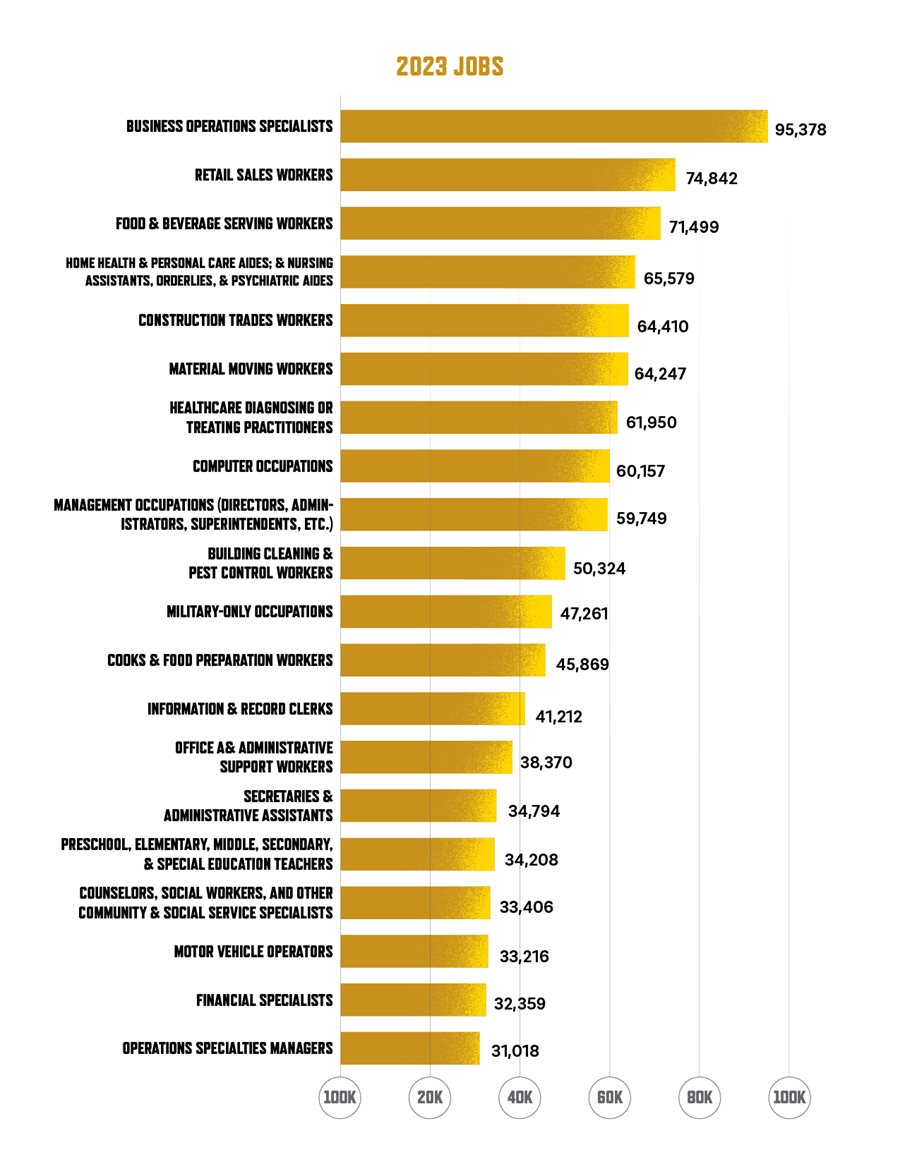
2023 Turnover Rate:
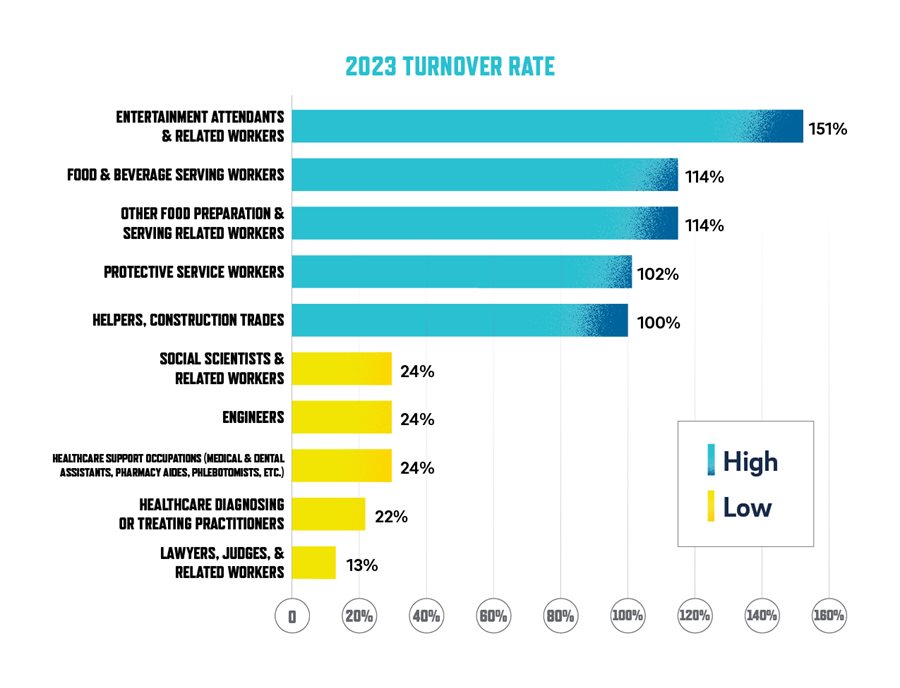
5 Year Growth Percentage:
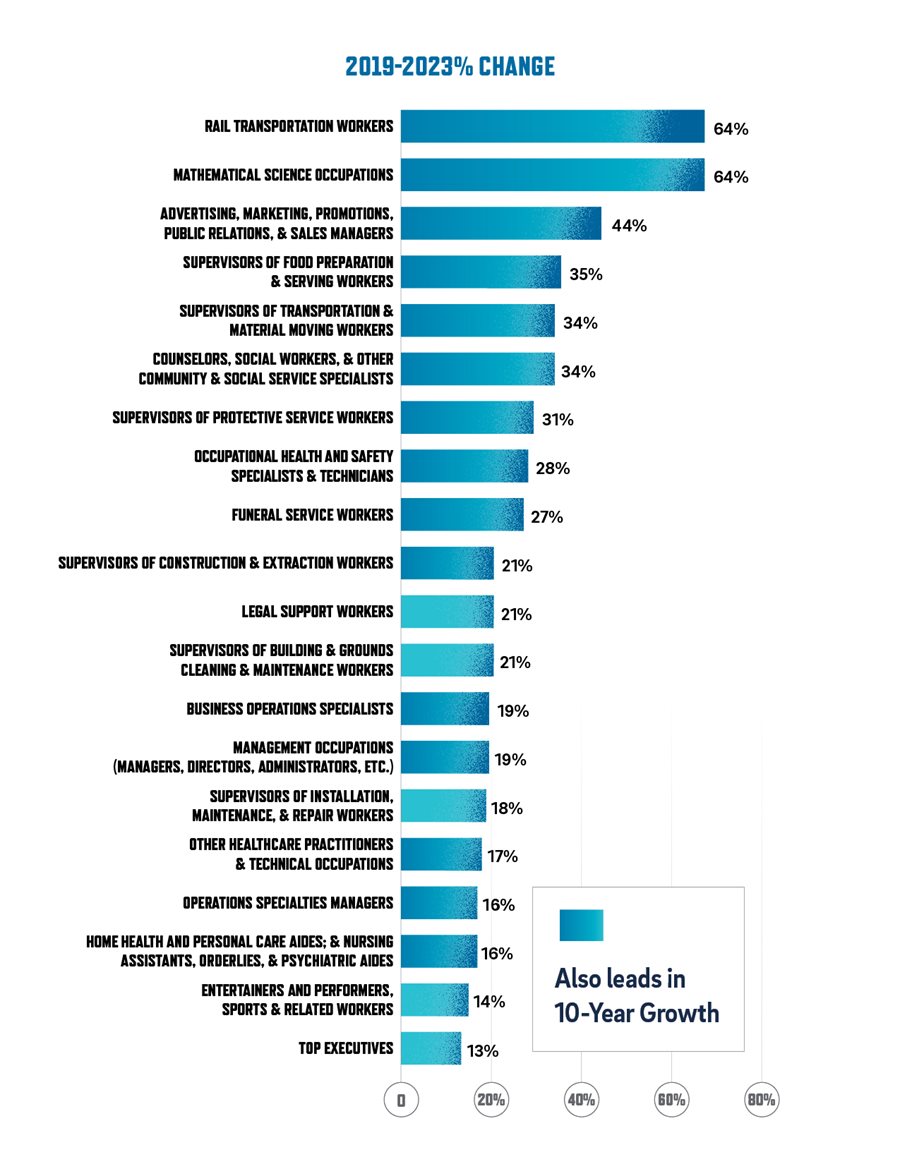
Absolute Growth Count Penalty:
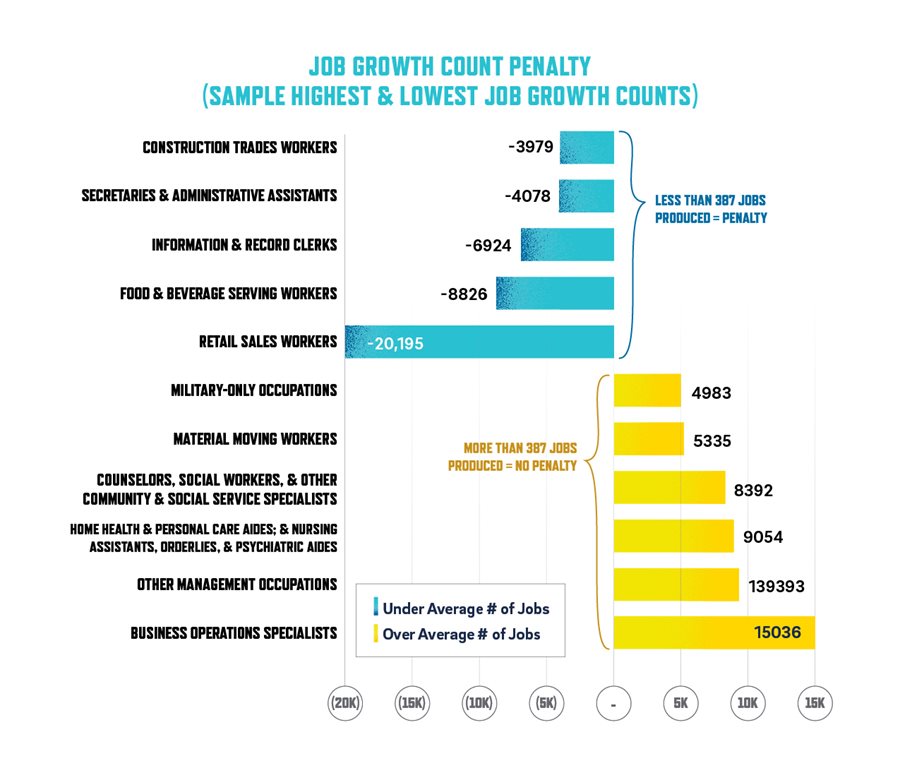
Job-Posting-to-Worker-Profile Ratio:
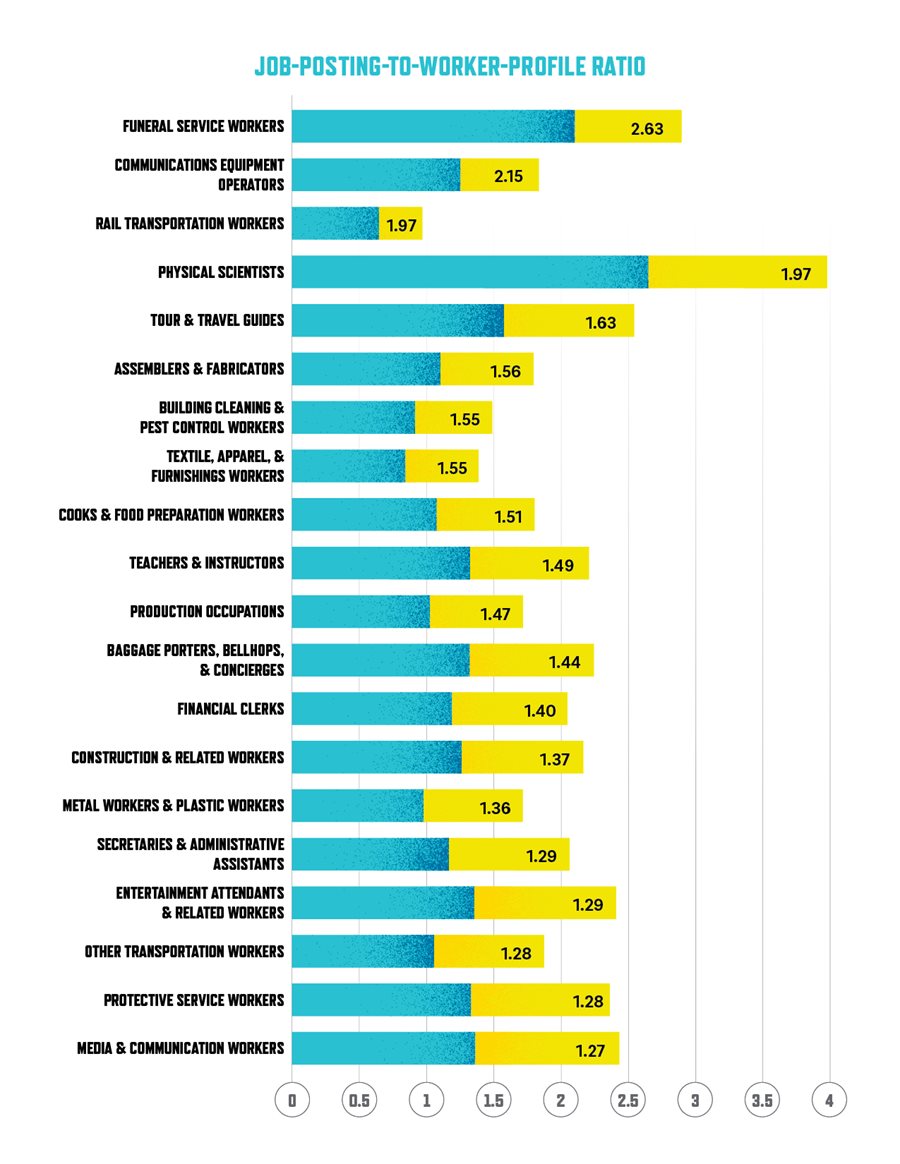
2023 Employment Concentration/Location Quotient:
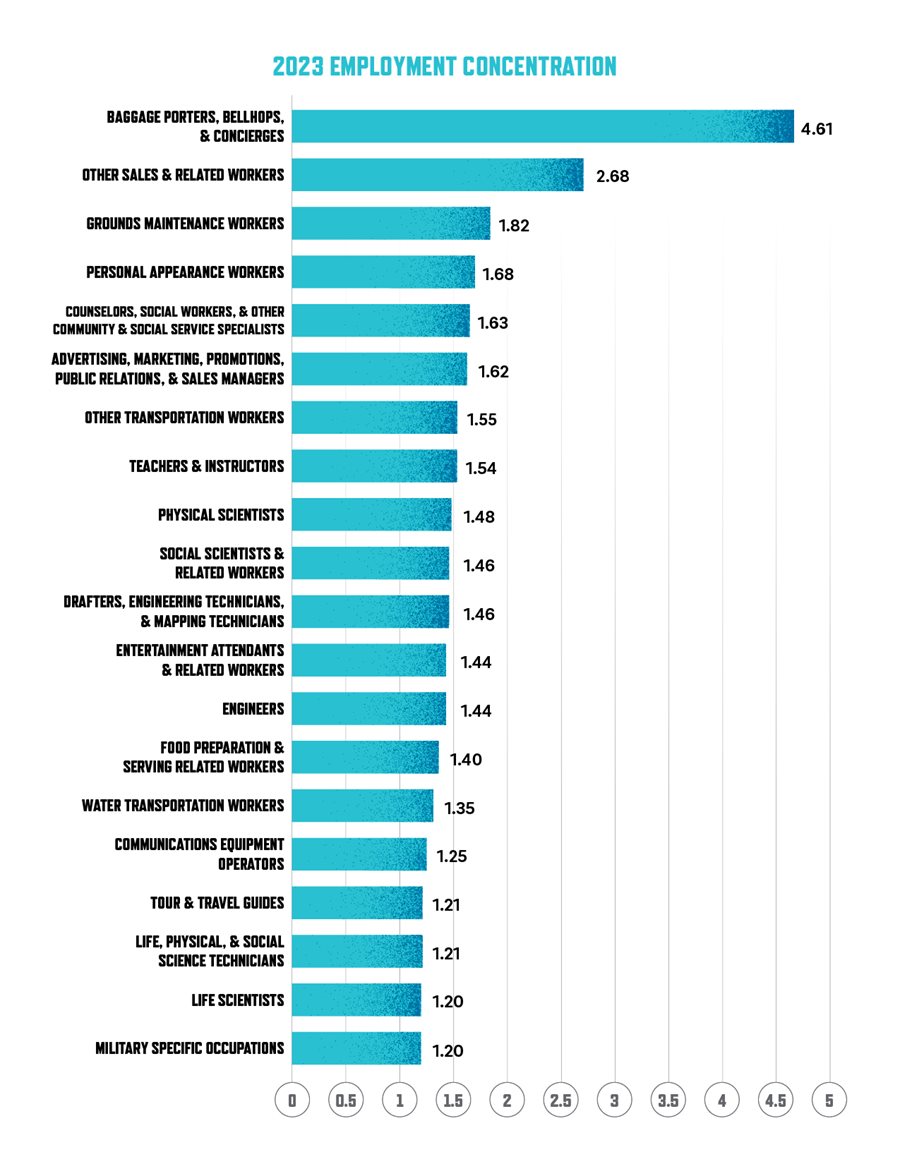
Occupation Openings (2019-2023):
Job postings can represent the ceiling of demand for an occupation, but only if employers are actively advertising online. Job openings take a more conservative approach to demand, accounting for job growth and estimating replacement needs for workers who change careers or retire. Because it's likely that the true demand for a job is somewhere between job postings and openings, both metrics are included in some capacity in this analysis.

COL Adjusted Median Annual Earnings:

The table below shows the top 20, three-digit occupations. Featured in this list are technical, health, social science, education, legal, management, and food/custodial service workers.
Each occupation may perform well due to strengths in different areas; for example, Computer Occupations are not particularly unique to the San Diego County area (low competitive effect score), nor does demand seem high in the area compared to supply. However, these occupations (which include occupations such as Computer Programmers and Software Developers) have higher annual pay rates and added almost 10 times the average number of jobs in terms of five-year growth. While this growth may not be as high a percent (6% from 2019-2023), it does add many jobs to the area.
Conversely, Counselors, Social Workers, and Other Community and Social Service Specialists are much more unique to the San Diego County area, more than twice as many jobs added over the last five years in growth (and 30% growth 2019-2023), but with a higher turnover rate compared to Computer Occupations and less than half the pay.
As an example of how these top-ranked occupations would connect to UC San Diego Extended Studies programs, let’s take a look at a few examples.
- Management occupations are ranked first amongst high-ranking occupations (see table below). This occupation includes many job titles across industries, but a few examples might include program manager, general manager, or assistant general manager. There are several UC San Diego Extended Studies certificates that might be of interest to those placed in these and similar positions, or to those aspiring to these roles, such as the Interpersonal Leadership, Teamwork, and Communication certificate, the Community Leadership Program, or the Technology Leadership and Leadership Development certificates. Some sample courses might include Project Management Essentials (BUSA-40064) or Leading and Managing Change (BUSA-40978).
- To provide another example, let’s look at computer occupations, which are ranked fourth in the table below, with job titles that include software or systems engineer, business systems analyst, or Java developer. UC San Diego Extended Studies offers certificate programs in Front End Development, Java Programming, and Business Intelligence Analysis, just to name a few, that offer courses such as Introduction To Programming Using Java (CSE-41242) or Principles of User Experience and User Interface Design (UI) (ART-40638).

